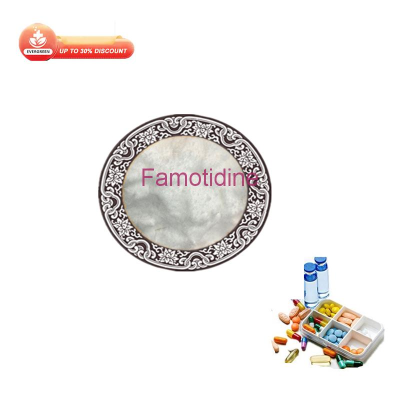-
Categories
-
Pharmaceutical Intermediates
-
Active Pharmaceutical Ingredients
-
Food Additives
- Industrial Coatings
- Agrochemicals
- Dyes and Pigments
- Surfactant
- Flavors and Fragrances
- Chemical Reagents
- Catalyst and Auxiliary
- Natural Products
- Inorganic Chemistry
-
Organic Chemistry
-
Biochemical Engineering
- Analytical Chemistry
- Cosmetic Ingredient
-
Pharmaceutical Intermediates
Promotion
ECHEMI Mall
Wholesale
Weekly Price
Exhibition
News
-
Trade Service
Atherosclerotic cardiovascular disease (ASCVD) is a general term for a group of heart and vascular diseases including coronary heart disease, myocardial infarction, and stro.
Scientists have long linked factors such as saturated fat, dietary cholesterol, sodium, nitrite, and even high-temperature cooking with an increased risk of ASCVD, arguing that the unhealthy eating habit of eating meat is an important factor in triggering ASCVD o.
On August 1, 2022, a research team led by American Heart Association Distinguished Scientist, Professor Stanley Hazen, Chair of the Department of Cardiovascular and Metabolic Sciences at the Cleveland Clinic, and Professor Dariush Mozaffarian, Friedman School of Nutrition Science and Policy, Tufts University, met at Arteriosclerosis, Research paper entitled: Dietary Meat, Trimethylamine N-Oxide-Related Metabolites, and Incident Cardiovascular Disease Among Older Adults: The Cardiovascular Health Study was published in Thrombosis, and Vascular Biology (ATVB)
Arteriosclerosis, Thrombosis, and Vascular Biology (ATVB) Dietary Meat, Trimethylamine N-Oxide-Related Metabolites, and Incident Cardiovascular Disease Among Older Adults: The Cardiovascular Health Study
For the first time, the team investigated the correlation between animal-derived foods and atherosclerotic cardiovascular disease (ASCVD) risk, the effects of gut microbiota byproducts and traditional ASCVD risk pathways such as blood cholesterol, blood pressure, and blood sug.
Pr.
Previously, much of the focus on red meat intake and health revolved around dietary saturated fat and blood cholesterol leve.
According to the study's findings, new interventions may help target the link between red meat and the gut microbiome, said first author Meng Wang, a postdoctoral researcher in the Friedman School of Nutrition Science and Policy at Tufts Universi.
Foods of animal origin, including red meat (pig, beef, lamb, e.
The team hypothesized that red and processed meat intake was positively associated with the incidence of ASCVD and that these associations were mediated in part by plasma levels of trimethylamine oxide (TMAO)-related metabolit.
When high-fat food is ingested, food residues enter the intestine and are converted into trimethylamine (TMA) by intestinal bacteria, and after TMA enters the liver, it is oxidized to TMAO by flavin monooxygenase (FM.
Previous studies by Professor Stanley Hazen et al have confirmed that high levels of TMAO in plasma are associated with atheroscleros.
In a cardiovascular heart study involving 5333 participants, published in JAMA Network Open on May 22, 2022, Professor Dariush Mozaffarian et al found that older adults had higher levels of TMAO and related metabolit.
For the new study, the team looked at a.
A study of cardiovascular health in the United States that began in 1989, the participants were all over the age of 65, and 65% were women
Generation pathway of TMAO and its intermediate metabolites
At follow-up follow-up, participants' medical history, lif.
They also answered two validated food frequency questionnaires at the start of the study and between 1995 and 1996 about their usual dietary habits, including intake of red meat, processed meat, fish, poultry and eg.
The researchers found that intake of unprocessed red meat, total meat, and total animal-derived foods was associated with a higher risk of ASCVD over an average of 15 years of follow-.
Conceptual map of the relationship between diet, gut microbiota-generated TMAO-related metabolites, and ASCVD
in particular:
Eating 1 servings of meat (about 90 grams) per day increases the risk of ASCVD by 22%, of which about 10% is caused by three metabolites (TMAO, γ-butyl beet) produced by gut bacteria after ingesting red me.
alkaloids and crotonbetaines) levels are mediated;
The higher risk of ASCVD associated with meat consumption is partly mediated by blood glucose and insulin levels;
For processed meat, increased ASCVD risk was mediated by systemic inflammation, but not blood pressure or blood cholesterol levels;
In addition, the association was not found in poultry, eggs or fi.
Study co-corresponding author Professor Dariush Mozaffarian said the study identified three major pathways that help explain the link between red and processed meat and atherosclerotic cardiovascular disease, namely metabolism related to the gut microbiota Substances such as TMAO, blood sugar levels and systemic inflammation, each of which appears to be more important than pathways related to blood cholesterol or blood pressu.
This means that when choosing foods of animal origin, focusing on differences in total fat, saturated fat, or cholesterol is not paramount; instead, it is better to understand the health effects of other components in foods, such as carnitine and heme ir.
is the most importa.
Professor Stanley Hazen said the study linked the gut bacteria-TMAO pathway to animal-derived foods and an increased risk of atherosclerotic cardiovascular disea.
Reasonable dietary choices are one means of reducing this risk, as dietary interventions can significantly reduce TMAO leve.
Original source:
Amanda.
Fretts, et .
Association of Trimethylamine N-Oxide and Metabolites With Mortality in Older Adul.
JAMA Netw Op.
2022;5(5):e221324 doi:11001/jamanetworkop.
2021324







